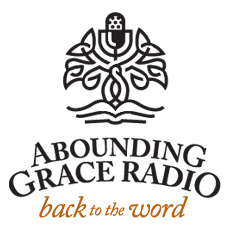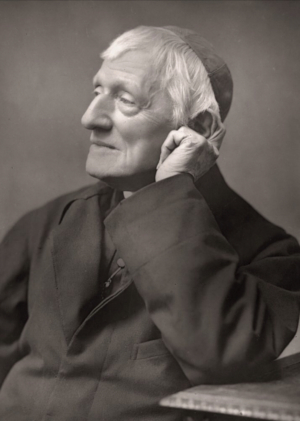A reader writes with a question about biblical interpretation and baptism: I was going through Colossians 2 when I read the footnote from the Reformation Study Bible… which sent me to page 41 for a more in-depth explanation. Infant baptism seems to make . . . Continue reading →
Abounding Grace Radio
The Late-Modern Oppression Olympics In Biblical Perspective
If you are, as I am, bewildered at the sight of biological males competing in female athletic events (e.g., track, wrestling, and weight lifting) or by the sight of wealthy, privileged Yale undergrads screaming at faculty members (for writing a memo asking for toleration for diversity in Halloween costumes), or by the prospect of a leading scholar and physician of gender dysphoria being banned from social media platforms for daring to suggest that minors should be required to wait until age 21 before undergoing permanent sex-reassignment surgery), or by rhetoric that implies that the social and economic conditions of ethnic minorities in the USA is virtually unchanged since the 1860s, there are two words that provide at least a partial explanation: subjectivism and oppression. Continue reading →
Canons Of Dort (30): God’s Gracious Assurance Of Perseverance
The single most frequent way to corrupt the doctrine of perseverance has been to turn it into a covenant of works. This happens regularly outside the Reformed churches. E.g., the Romanists teach that, in baptism, sins are graciously washed away, initial justification . . . Continue reading →
Romans Series (23): The Power Of God For Salvation (Rom 5:20–6:9)
Romans is one of the greatest resources available to the Christian faith and life. Written in the mid-to late AD 50s to the congregation in Rome, Paul sent this pastoral letter to make clear the gospel, that salvation is from the Lord, . . . Continue reading →
Canons Of Dort (29): The Reality Of Sin And Grace In The Christian Life
One of the great and persisting differences between the Reformed and Remonstrant (Arminian) confessions is the difference between the Reformed realism about the Christian life as distinct from the latent Remonstrant perfectionism, i.e., the Pelagianizing doctrine of entire, sinless perfection short of . . . Continue reading →
Canons Of Dort (28): Our Sovereign God Administers His Gospel Freely And Humans Are Responsible For Free Choices
As the confessional Protestant churches understood the Scriptures, the only universal revelation to all persons in all times is the natural revelation of God and of his moral law. This natural law was insufficient to save anyone but it was sufficient to . . . Continue reading →
Canons Of Dort (27): The Reformed Distinguish Law And Gospel
When we think of the Synod of Dort and their rulings (canons) against the Remonstrants (Arminians) we tend to think about the doctrine of sin or the doctrines of unconditional grace, election, and the like but there were structural, subterranean issues at . . . Continue reading →
The Reformation Of Vocation
In the period between the early post-apostolic church (e.g., the 2nd and 3rd centuries AD) and the Reformation (beginning in the early 16th century AD) the church came to develop some unbiblical and therefore unhelpful and unhealthy ways of relating creation and . . . Continue reading →
Canons Of Dort (26): Perseverance Is Good News For Sinners
Under this head of doctrine we have considered the errors that Synod rejected—the Remonstrants turned the perseverance into a covenant of works—so now we turn to what Synod confessed positively about how Christ graciously preserves his people through their pilgrimage in this . . . Continue reading →
Romans Series: The Power of God For Salvation (22)
Romans is one of the greatest resources available to the Christian faith and life. Written in the mid-to late AD 50s to the congregation in Rome, Paul sent this pastoral letter to make clear the gospel, that salvation is from the Lord, . . . Continue reading →
Sometimes The QIRC Leads To Rome
As I was running errands this past Saturday I listened to a podcast in the Ricochet network hosted by Mark Bauerlein, himself a convert to Rome from atheism, in which he interviewed a convert to Rome (from evangelicalism) about the impending canonization . . . Continue reading →
AGR: What’s Good About Good Friday?
Easter is a busy season for pastors so I am filling for Chris today on a special episode of AGR. It is Good Friday and I thought it would be good to think a bit about that expression, “Good Friday.” What an . . . Continue reading →
Commandment Thursday
This is Easter Week 2019. On this day, since the late 4th century (393) the Western (Latin) church has remembered that our Lord instituted the sign and seal of the renewal of the covenant of grace, holy communion (the Lord’s Supper). On . . . Continue reading →
Choose Your Metaphors Carefully: The Church Is A Pasture Not A Business
35 years ago, when I began seminary, the “church growth” movement was hitting its stride. In a course taught by an adjunct professor with a Harvard MBA we were taught how be efficient just the way successful CEOs are. Later, in the . . . Continue reading →
Romans Series: The Power of God For Salvation (21)
Romans is one of the greatest resources available to the Christian faith and life. Written in the mid-to late AD 50s to the congregation in Rome, Paul sent this pastoral letter to make clear the gospel, that salvation is from the Lord, . . . Continue reading →
Did God Make Mayor Pete Gay?
Sunday is the Christian Sabbath, it is a day on which Christians set aside time to pray, to gather for corporate worship, and to think and speak about God. So, in that regard, the remarks this past Sunday by Pete Buttigieg, the . . . Continue reading →
Romans: The Power Of God For Salvation (20)
Romans is one of the greatest resources available to the Christian faith and life. Written in the mid-to late AD 50s to the congregation in Rome, Paul sent this pastoral letter to make clear the gospel, that salvation is from the Lord, . . . Continue reading →
On Samuel, Social Justice, And The Prophetic Office Of The Church
It is not difficult to find calls for the church to be “prophetic” especially toward the end of “social justice.” Of course we should favor social justice since nature and Scripture (e.g., Rom 13:1–7) both teach us that it is the function . . . Continue reading →
They Are Coming For Your Children
There have been, arguably, three sexual revolutions in the modern period. If we think of the early stages of feminism, in the late 19th and early 20th centuries, that was part of a sexual revolution that included a loosening of heterosexual mores. . . . Continue reading →
It Was Not So From The Beginning: What Nature And Grace Teach Us About SSA
It is being argued in some evangelical quarters that same-sex attraction (SSA) or homosexual attraction is “natural” and that it SSA (sexual desire for someone of the same sex) is not per se sinful. One writer who defends this view quotes John . . . Continue reading →












